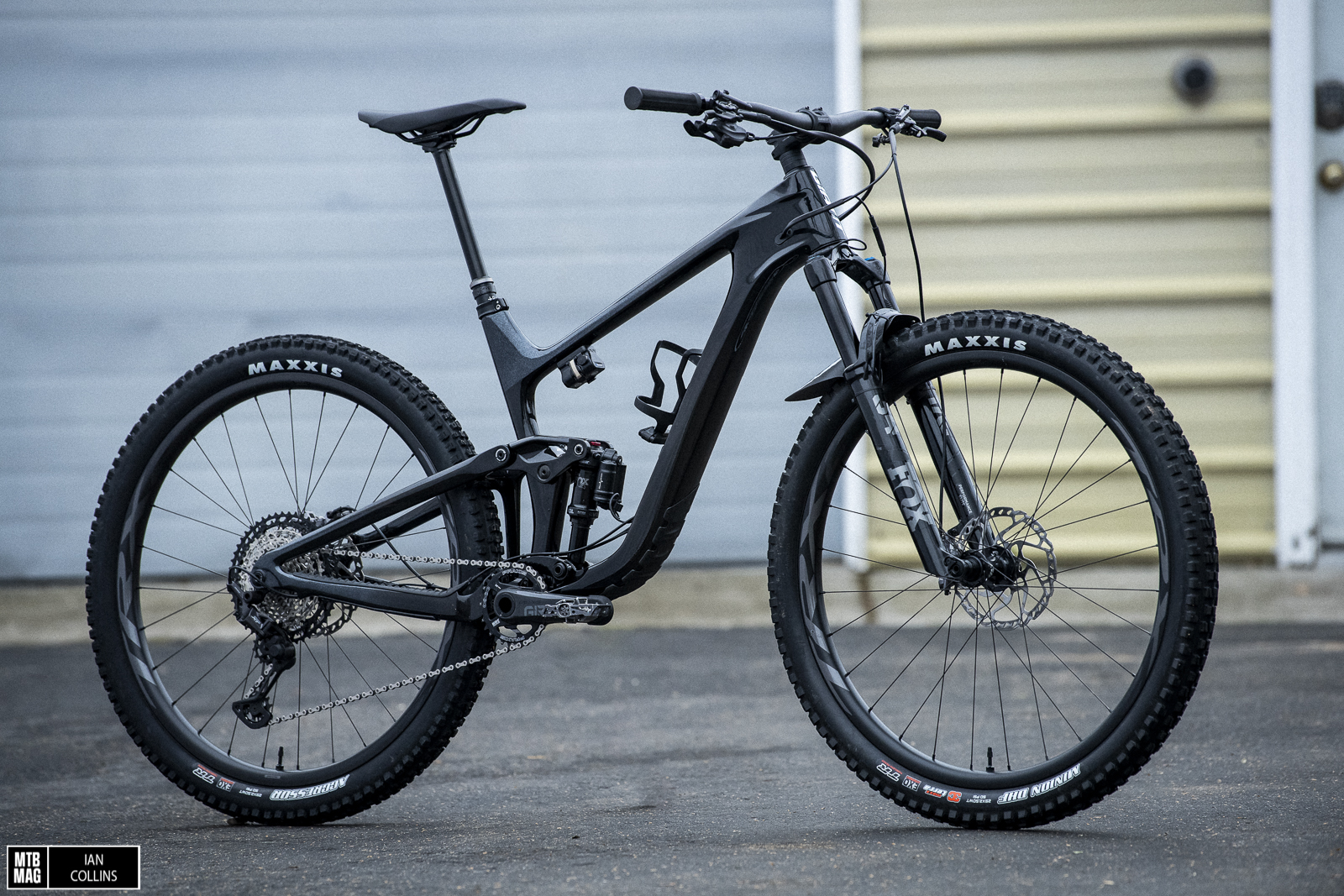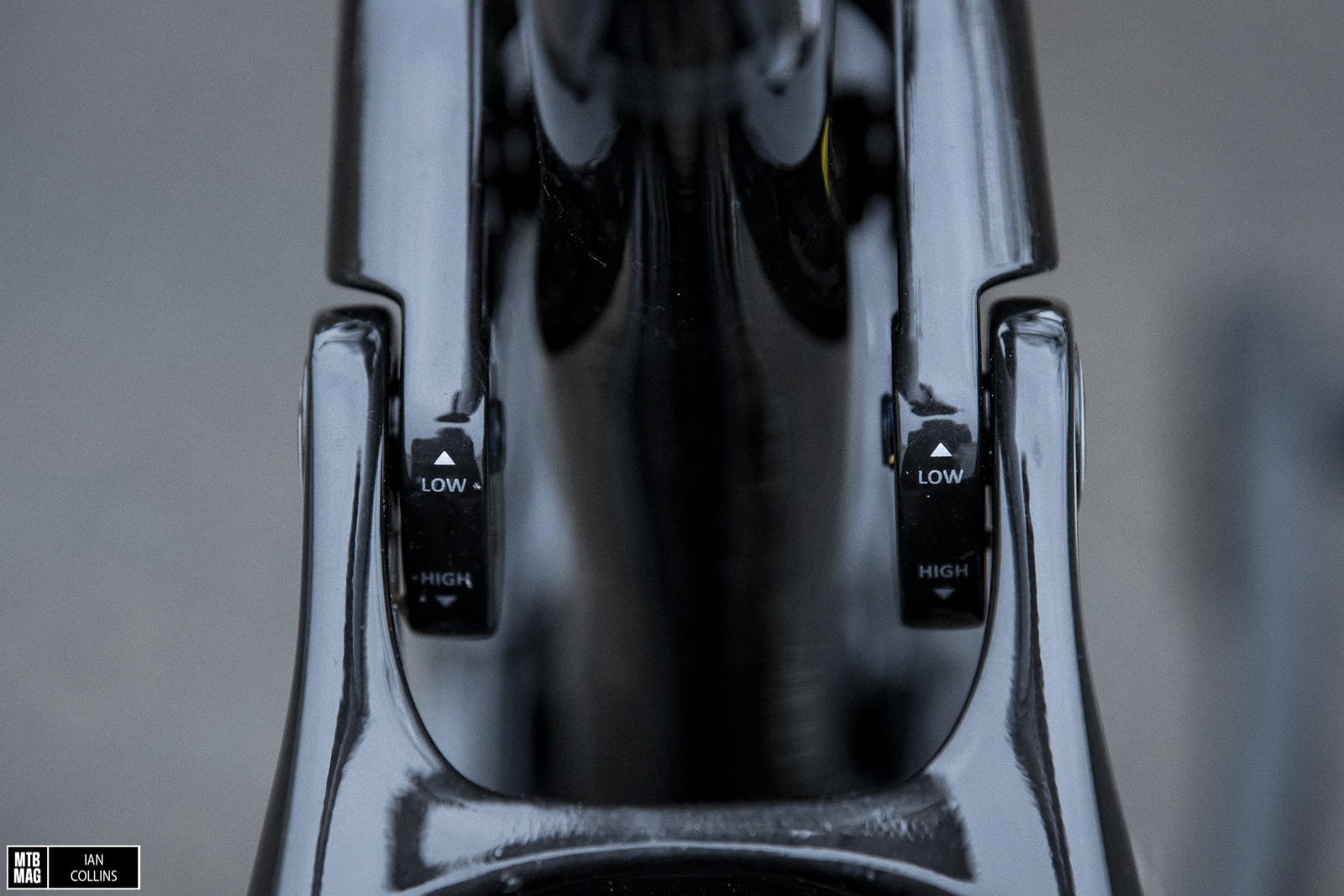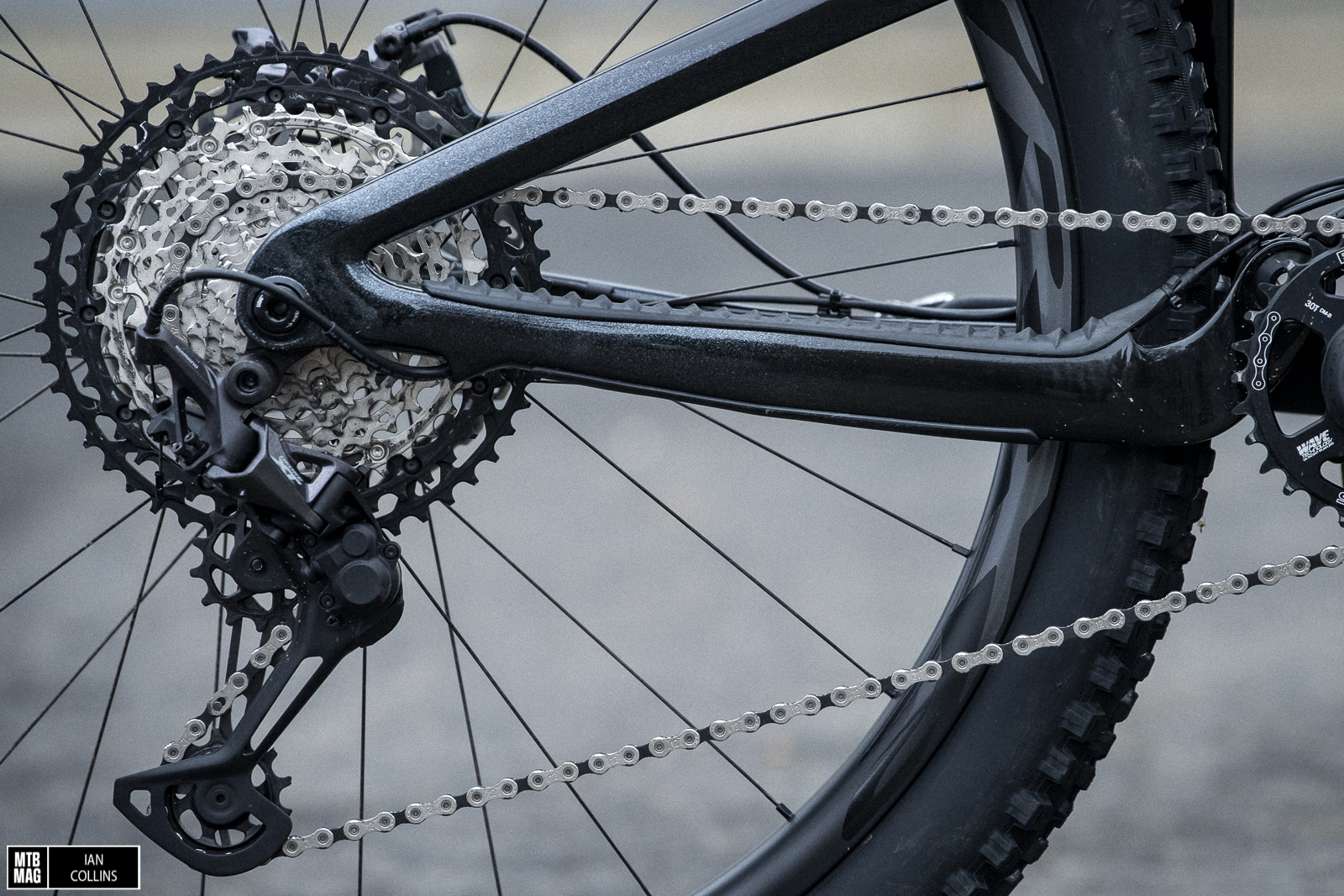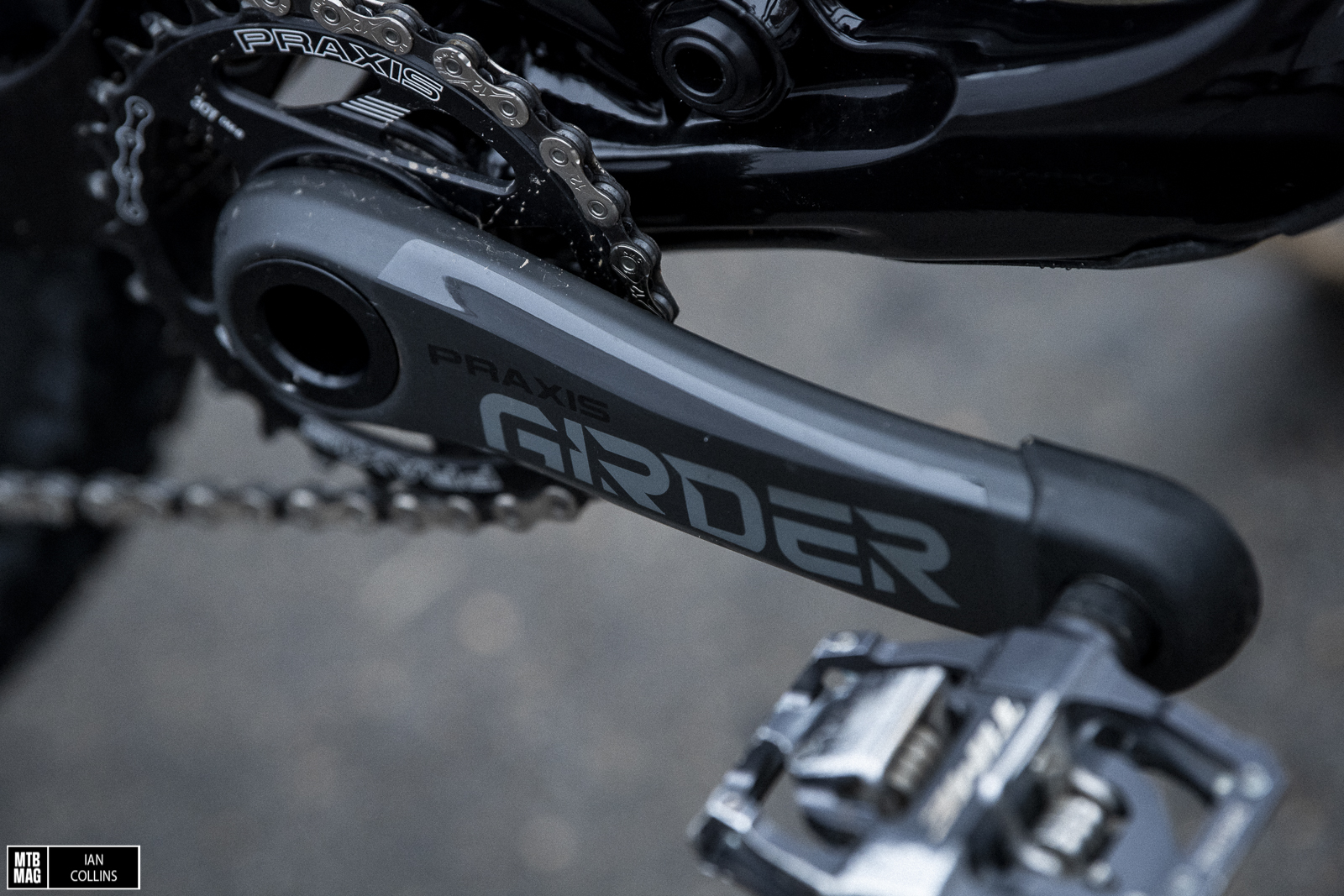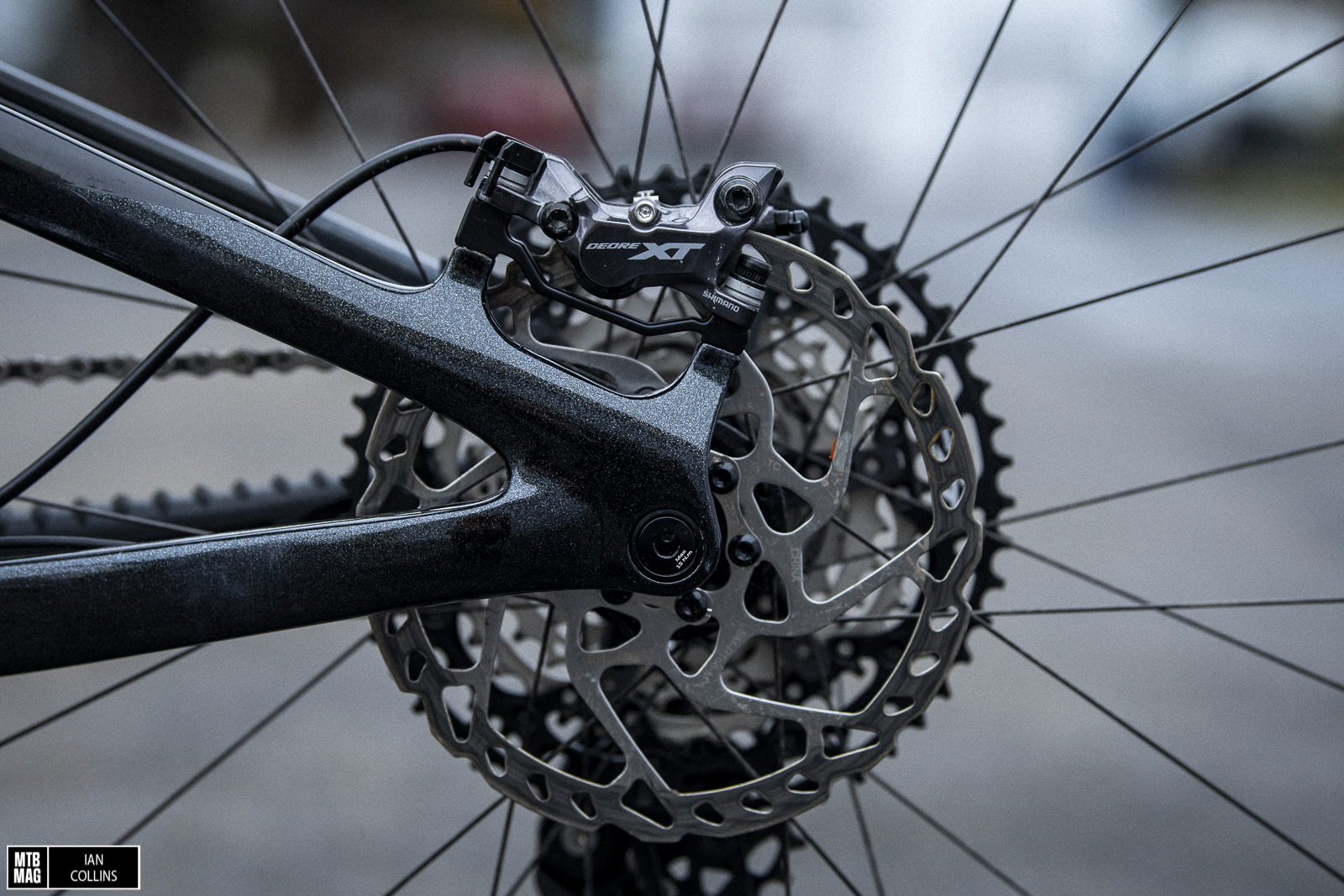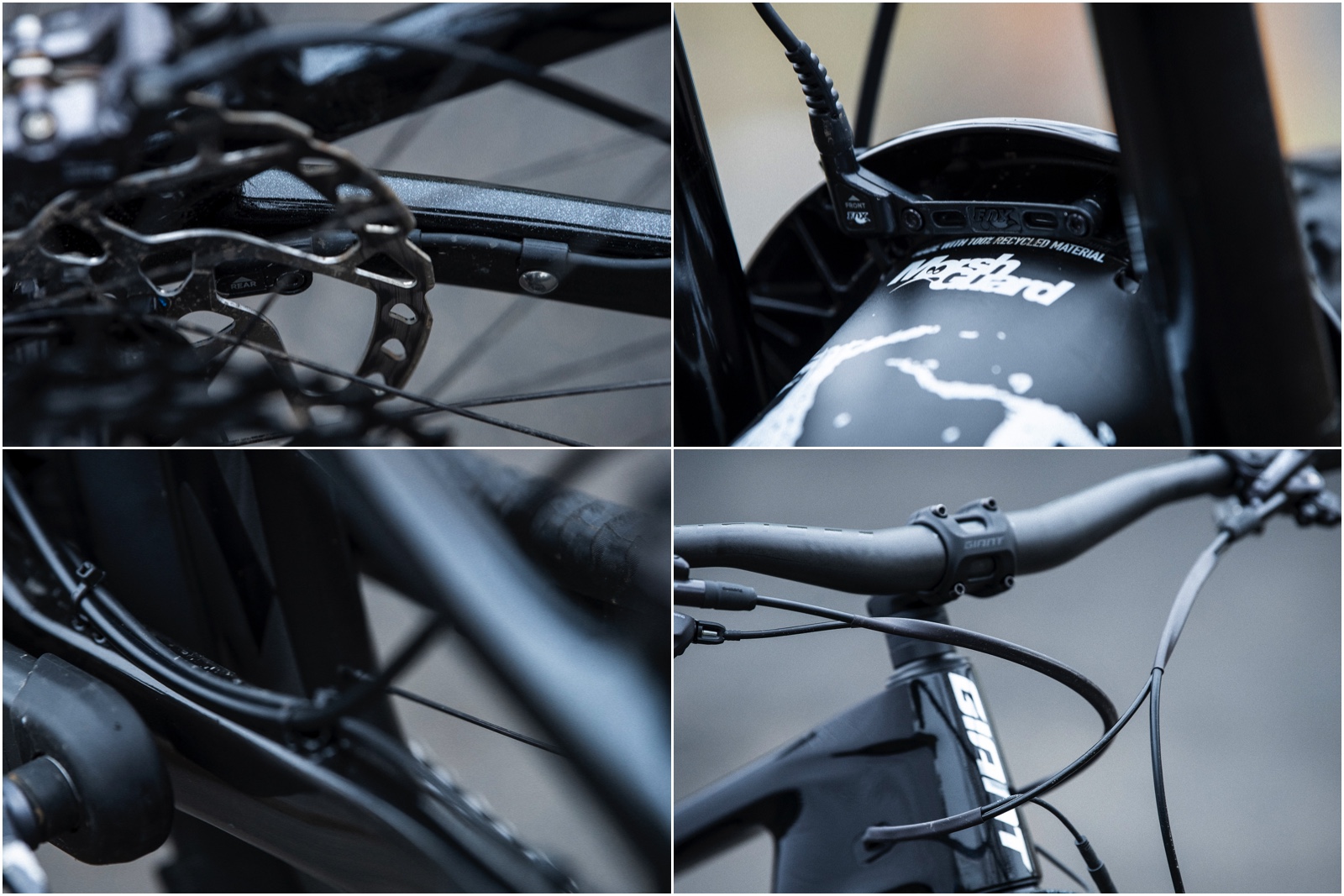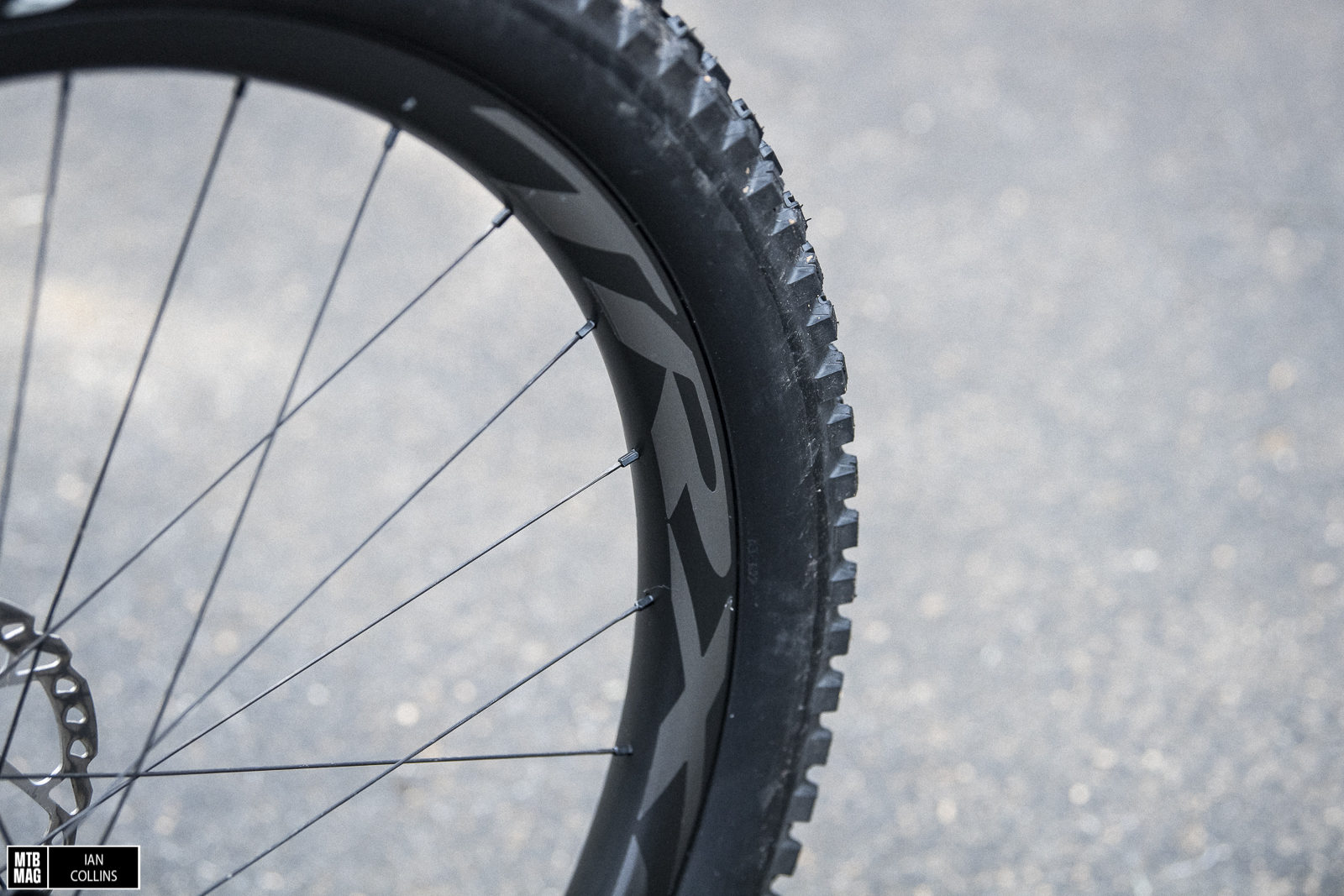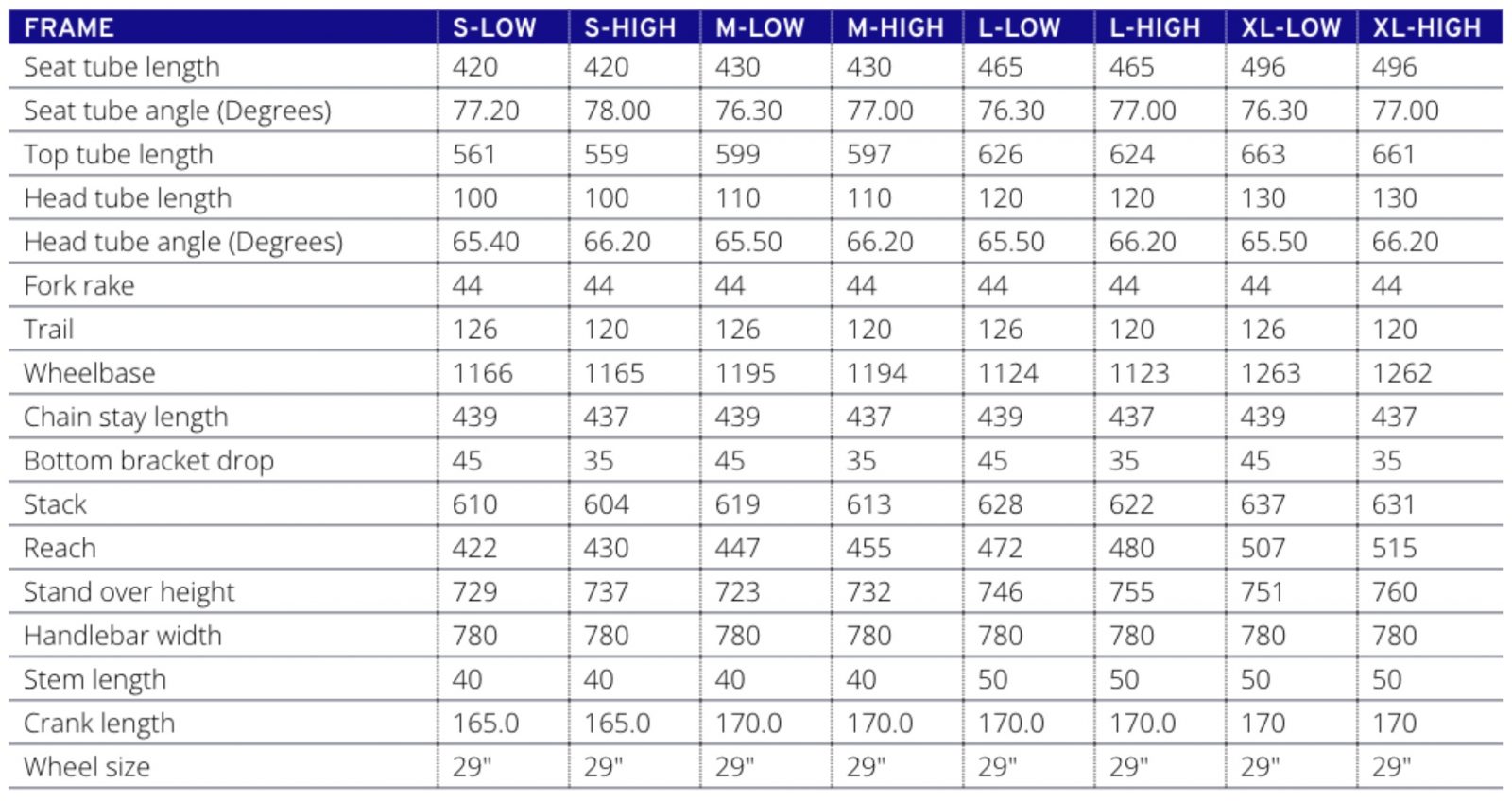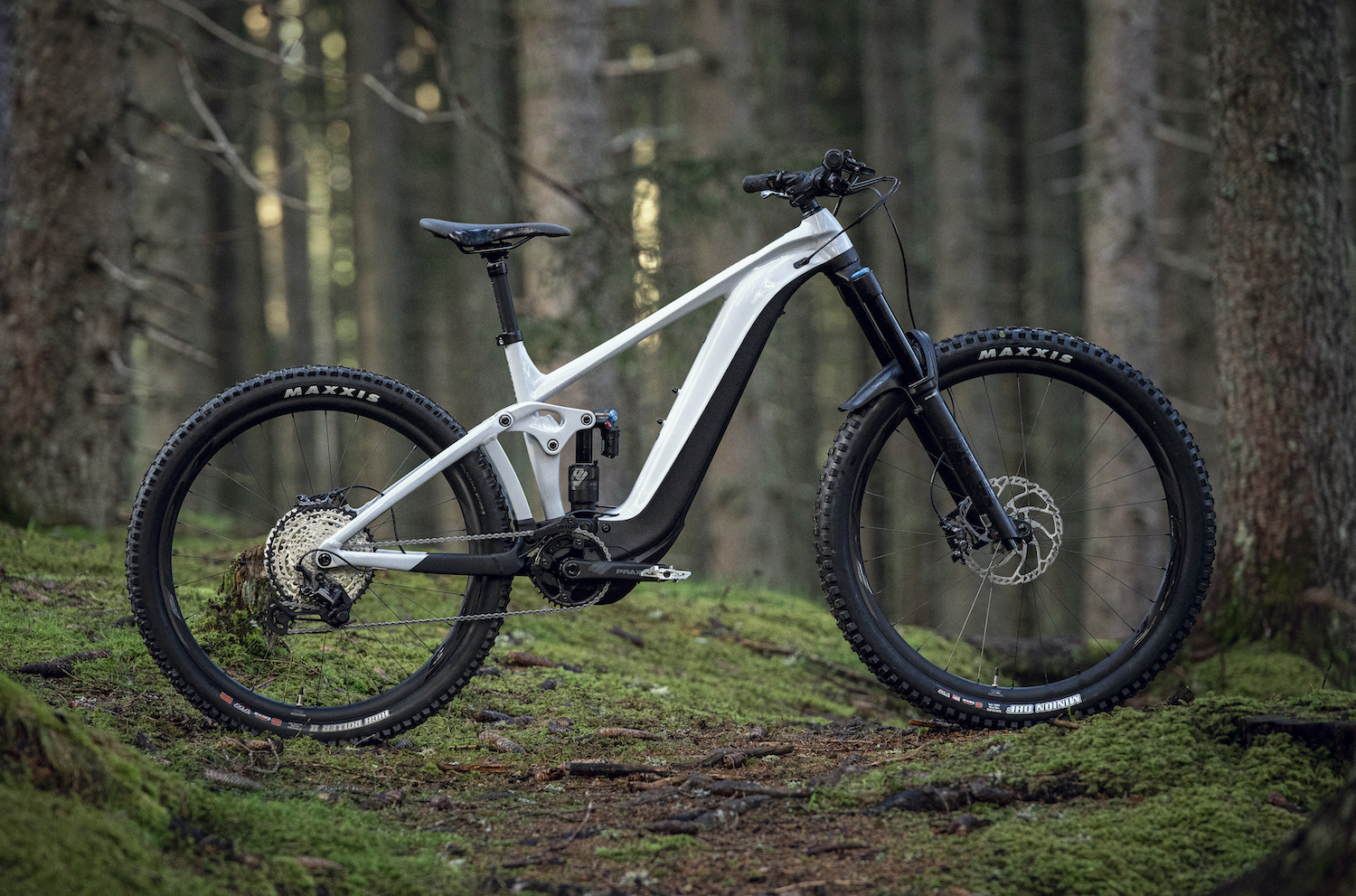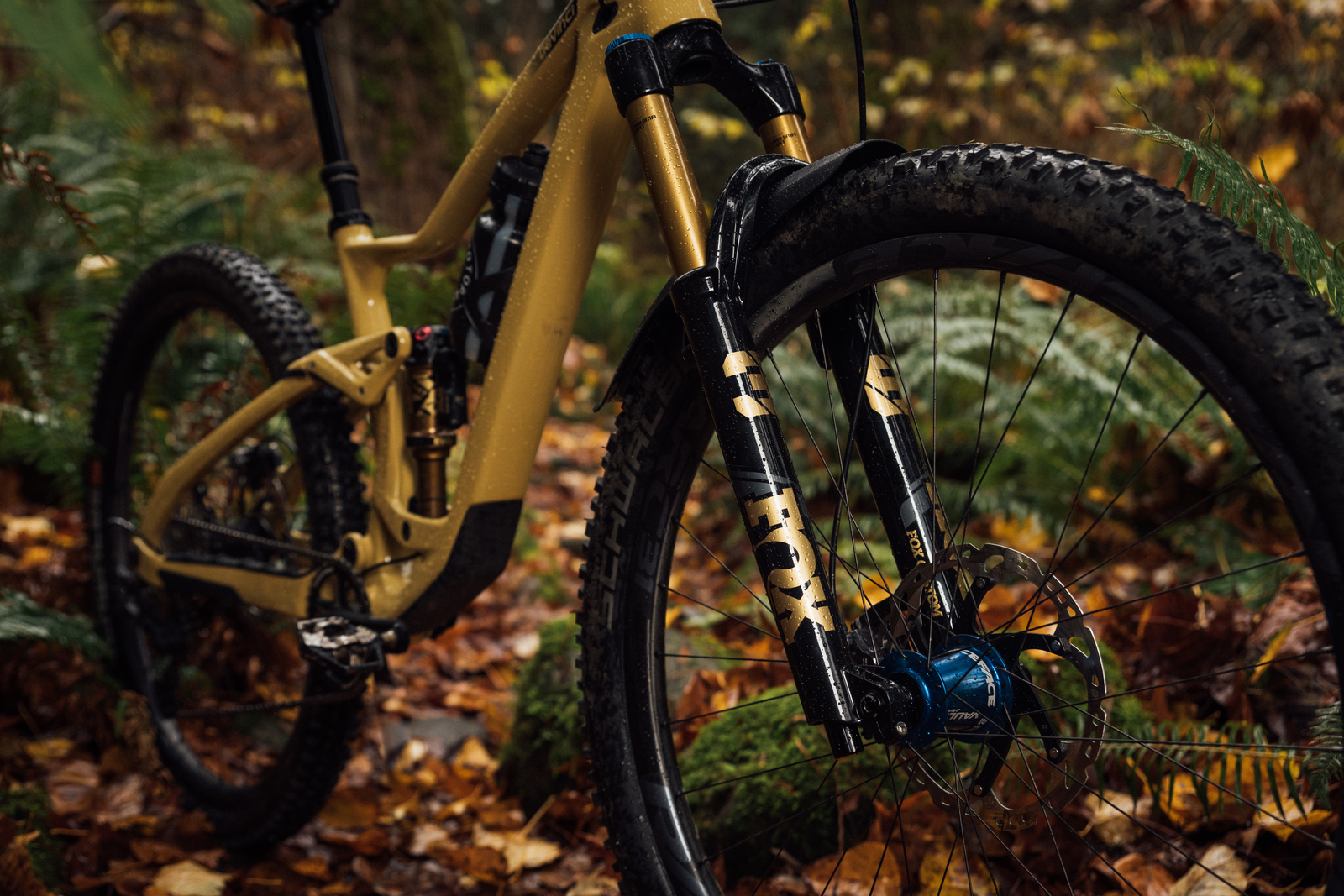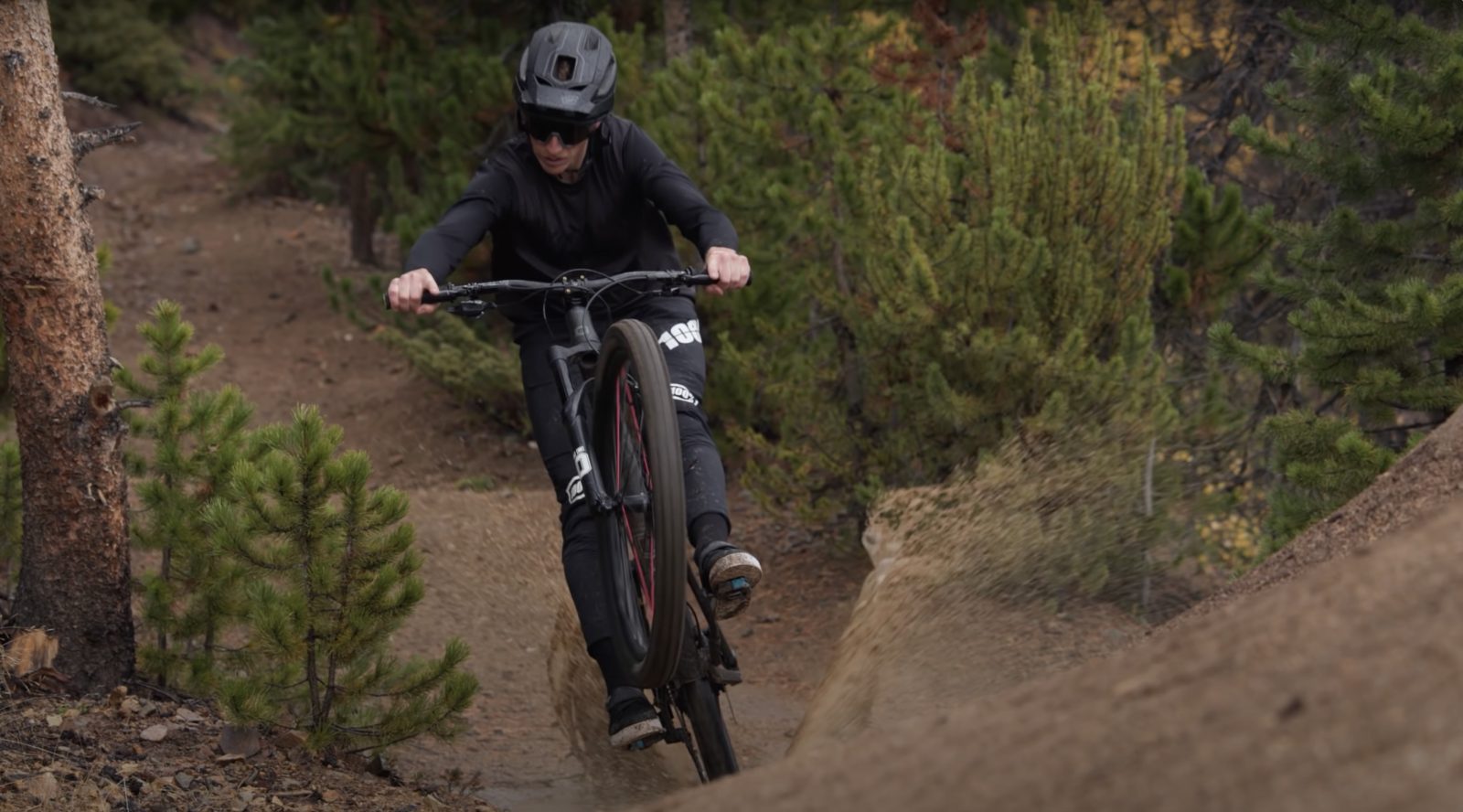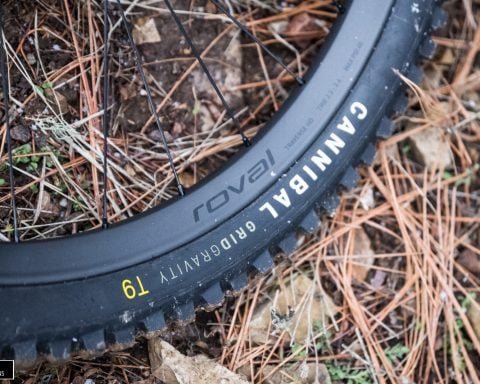Upon fully revising the Trance 29, the folks at Giant were kind enough to send us a sample in the Advanced Pro 1 level spec for testing. As the bike sees a host of smart updates, Giant has made it very clear that this is not an XC bike and nor is it a “downcountry” bike either. Rather, they bill it fittingly as a “short travel trail bike”, and it only took a few minutes on the local goods to see why. On that topic, if you are curious what Giant has been up to in the XC/DC realm, check out the new Anthem. As a quick overview the new Trance gets a rear travel bump from 115mm to 120mm plus it sees a much improved geometry set – which is now adjustable. Last but certainly not least, it also benefits from downtube storage. The model I tested here is spec’d with an updated Fox Live Valve system that has improved tuning and has now trickled down to their Performance Elite platform. For a more complete breakdown have a look at the video below, or read the long form test that follows…

Details Giant Trance Advanced Pro 29 1
- 130mm front / 120mm rear suspension
- 29″ wheels
- Adjustable geometry via flip chip
- Maestro suspension
- Downtube storage
- Internally routed cables/hoses
- $7,000 USD
- 29.9 pounds – Large, our scale, without pedals
The simplest and most notable update is the addition of adjustable geometry via a flip chip – first seen from Giant on the current Reign, if my memory serves me correctly. This adjustment is made with a single allen key and the chip is housed in the carbon fiber shock link. On offer is a variation of +/- .7º of the headtube angle and +/- 10mm of bottom bracket height. I found both settings to be very manageable and Giant nailed the range and numbers in each position, providing nice spread of options without going to extremes.
The paint scheme for the new Trance appears to be a stealthy black on black, but when the light hits you’ll notice there is a sparkle undercoat highlighting some parts of the frame.
The new Trance is nicely wrapped in molded rubber protection at all the critical points and chain slap was a non issue – it’s a quiet bike…particularly for a short travel model.
The Trance marks Giant’s first dive into onboard – or perhaps I should say inboard – frame storage. The bottle cage bolts to a sleekly integrated door which is opened and closed with a 90º turn of a knob. While I generally fawn over this kind of thing, I must say it was a little difficult to get the necessities inside of the frame once they were packed into the included frame bag. This seemed to be an issue mainly caused by a lack of room at the opening and the slightly small overall size of the downtube. Careful packing meant that you could stash a few things in there, but there is also some interference with cables and hoses as well if you try to stuff things too far up or down.
The Advanced Pro 29 1 model in test here sees a nearly complete Shimano XT package. 12 speed gearing and a 10-51T cassette gives you all the range you could ask for.
The single deviation from Shimano was with the excellent Praxis Girder carbon fiber crankset. The Girders are ultra stiff, and super strong. I’ve tested of them in the past and have nothing but good things to say about them. The Praxis chainring also has excellent chain retention and a 170mm length serves as a reminder that this is not an XC bike.
A full Shimano XT package means powerful 4-piston brakes. While I do think the XT brakes offer up plenty of power, given the bike’s high level of capability I did find a couple of situations where I wouldn’t have complained about a 200mm rotor – at least up front – as opposed to the 180mm front and rear option which comes as stock.
Live Valve is no longer flagship only – this is the first we’ve seen of Fox’s Live Valve system making its way down from the top of the line Factory platform. The electronically controlled suspension means you don’t ever have to fuss with lockouts, and this iteration is the first revision which sees improved tuning based on the last couple of years of market testing. The technology is packaged into a 130mm travel 34 up front and a shock that shares architecture with the DPX2, but with a Float X2 piston out back. A trunnion 185mm X 50mm stroke size gets the leverage ratio down to 2.4:1 out back, so kudos to Giant for that!
The Trance sees very clean packaging and implementation of Live Valve. Additional cables can be a tough pill to swallow, but the right routing, smart anchor points and a little bit of shrink wrap goes a long ways. I found the Trance to be very aesthetically pleasing and rather quiet, despite the added bits of tech involved.
All new, and much improved cockpit parts! Clockwise from top left: In the past I haven’t exactly been fond of Giant’s in house saddles, but the new Romero SL is a huge improvement. The contour, padding, nose shape, and width added up to very agreeable seat. Giant’s new in-house dropper seatpost has travel that’s adjustable from 170mm – 200mm, with my size Large bike seeing the full 200mm travel, which was perfect for my long limbs. The action was excellent and the feeling of the lever itself was decent, but not amazing. With that in mind, the seatpost itself is killer and would mate nicely to an upgraded lever should one choose. Giant takes a page from Sensus’ book and mates a wavy pattern to the topside of their new grip with a classic waffle pattern at the bottom – it turns out they’re surprisingly good. The carbon fiber handlebar had nice angles but I would’ve preferred a full 800mm width rather than the 780mm which was spec’d. Lastly, props to Giant for leaving room for height adjustment and not trimming the steerer tube too low.
Giant specs their in house TRX 2 carbon fiber wheelset with 30mm inner diameter rims laced to their signature hubs. The rims themselves are quite beefy looking so I suspected that they would ride a bit on the rough side. That proved to be untrue and overall I found them to ride very nicely…Not too firm and not too harsh.
Lastly, the Trance sees a Maxxis Minion DHF and Aggressor combination in a 2.5″ width both front and rear. The tire width alone serves as another reminder that the bike is aimed squarely at the short travel trail category. Both treads have proven to be a solid option for all around mountain biking in a broad range of conditions..
Geometry
A brief overview of the numbers puts the Trance right up there with what is now considered modern geometry. The figures on my size Large are just about exactly what I would request if I was getting a custom frame made…At least at this level of duty anyway.
Giant Trance Advanced Pro 29 1 on the trail
It’s been quite some time since I’ve ridden a bike in this category from Giant, so I was rather excited to see how they’ve come along. Starting with fit – as I mentioned just prior, the geometry numbers were spot on and I wouldn’t change a thing. This goes both for the handling those aforementioned numbers delivered, and the fit. In my opinion a size Large should fit a 6 foot tall rider perfectly, and the Trance does just that. I spent the bulk of my time in the low/slack position due to the nature of my local terrain, but I could absolutely see myself using the high/steep setting for longer rides on terrain that’s a bit more tame. The frame also delivered excellent handling as regards construction and layup. It’s rigid and precise in the turns but it didn’t beat me up or make excess noise, even despite the additional cables. This brings us to the new Fox Live Valve suspension…
It’s been some time since I’ve spent time on a bike equipped with Live Valve – if my memory serves me correctly, the last time was when it was launched. Back then I thought it was quite novel, but could stand to see some slight tweaks. Well, those tweaks have arrived and most of them are geared around making the system feel more responsive and a bit less harsh. This is accomplished both via the software (read: electronics) and hardware (read: hydraulic tuning) side of things. Starting out, Fox lowered the angle required to open up the descend mode. They also tweaked the algorithm to keep the valve open longer once it becomes activated and they lowered the bump threshold for a ride that is generally more plush. On the tuning side, the rear shock now uses the same main piston (read: more refined) as the excellent Float X2 models and the valving has been updated to better mesh with the latest software. The new system also does away with a full lockout at the firmest option, but maintains its standard 1-5 settings. According to Fox, a fully closed option was counterproductive as it beat riders up and hampered traction.
Anyhow – so how did this all pan out on trail? Better than I had expected and certainly a marked improvement over the last version of Live Valve that I’d ridden. To me, the entire point of the system is to not have to ever worry about lockouts or even think about my bike in between climbs and descents. That should be the goal, and should be the only way to rationalize/justify the added complexity of Live Valve. And so – Fox has accomplished that goal. It is a very set it and forget it ride, but you still do have some simple controls at your disposal with the threshold adjustment just being a button away. My one small gripe is that you have to look under your top tube to be dead sure of which setting you’re on – then again, I don’t really want to be staring at a device on my handlebar either, so I can’t really complain. On that topic, it’s worth mentioning one final update – Bluetooth connectivity now means further control and easy fine tuning on your smart phone via the Live Valve app.
As far as the suspension is concerned outside of Live Valve, I found it to be excellent both from the perspective of the frame’s kinematics as well as from the architecture of the Fox bits. This was my first time riding a 34 and it has been wholly impressive. I added a single volume reducer to the stock two and only rarely felt the occasional bottom out. The 34’s chassis handles very nicely given its minimalist stature, and although it is a small matter I would love to see an integrated fender option a la 36/38. Out back I never felt the need to alter the air spring curve, but Fox does a great job of offering a wide range of volume reducers for those who would like to. The rear shock itself provided excellent traction and fade free suspension that worked extremely well over a broad range of terrain. The damping and tuning both front and rear was well tailored to the bike and category, so I never really lamented having singular compression and rebound adjustments.
Speaking more broadly, the Trance is definitely a bike that batts well above its weight but it does so without relying on overly aggressive geometry or gimmicks. Rather, it maintains the right disposition for a trail bike but can still tackle a wide range of riding. As far as climbing was concerned, Live Valve can make it tricky to parse out how exactly the bike climbs from a kinematic standpoint, so for the sake of experimentation I turned it off a couple of times and found that the bike got along fairly well in terms of efficiency even when “unlocked”. Also – from a geometry standpoint, climbing was fantastic – the super upright seat tube angle made it effortless to get my body weight in a forward position on steep technical punches and long fire grinds alike.
As far as components go, I won’t drone on too long as I mainly think Giant did a sound job in choosing what they spec’d. First and foremost, credit is due to them for stepping up the quality of their in-house cockpit parts. I had no issue with any of them, which hasn’t always been the case on past bikes I’ve tested . The 200mm dropper post – and a nice one at that – is a serious highlight for me. It has smooth action and is adjustable down by 30mm, to 170mm. As far as the drivetrain and brakes are concerned, I was generally impressed with the XT groupset. The shifting might not feel quite as snappy and crisp as SRAM’s offerings, but the ability to shift under power is noticeably better and the range is of course excellent with a massive rear cassette. Praxis isn’t the first name that comes up when most people think of cranks, but their Girders are impressive all around – particularly as regards their stiffness. The XT brakes were quite good, although given Trance’s appetite for difficult terrain I found myself wishing for a 200mm front rotor at times. Overall they were quiet, powerful, consistent and offer up plenty of adjustment. Lastly, on the topic of wheels I found the TRX 2 hoops to deliver a nice ride. I haven’t pushed them for a mega long term timeframe, so I can’t fully speak to their overall strength, but the ride quality leaves nothing to complain about, and they’ve handled the more rugged trails I’ve thrown at them admirably so far. If anything comes up in the future we’ll keep you posted, but they seem to be a solid, no frills choice for OEM.
Overall
I’m a minimalist and an aesthete at heart, so I’m generally averse to the idea of extra cables, but in this case it means you don’t have to actuate lockouts or even think about them. I did focus a lot on Live Valve in the article, but it’s very much worth noting that the Trance isn’t married to that system. There are two other carbon fiber models which flank the Advanced Pro 1 that are available with standard suspension, as well as Giant’s standalone frameset and two aluminum models – both of which boast excellent value by the way.
Broadly speaking ,the new Trance is a great bike. It’s an efficient all rounder that is surefooted enough that it’s almost too easy to get it in over its head. A few years ago, the aggressive short travel 29″ trail bike category burst onto the scene with a handful of impressively capable bikes, then the space went fairly dark as “downcountry” became a thing. While I’m unsure if we’ll be seeing an onslaught of new bikes in this realm in the coming months, I do have a feeling that with the new Trance, Giant could very well set the benchmark. At $7,000 it boasts a great value, particularly given the increasing price of just about everything these days. A carbon fiber frame, full Shimano XT group, carbon fiber wheels and high end Fox bits make for a nice package at that price point. That fact that it has excellent geometry, kinematics and some cool new features is just icing on the cake.

